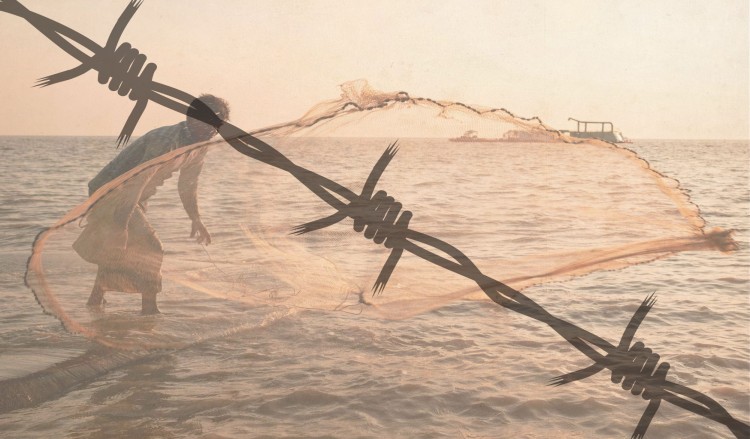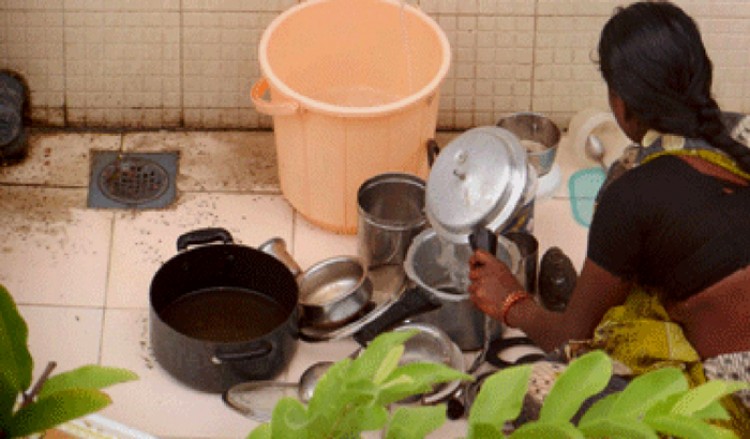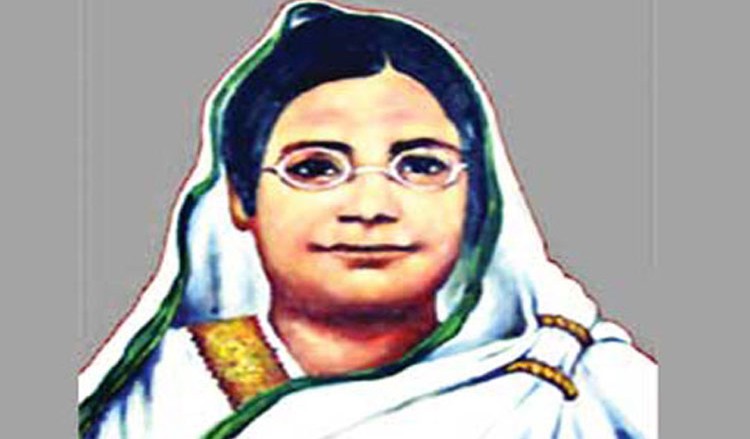- 22 May, 2023
- 0 Comment(s)
- 2167 view(s)
- লিখেছেন : Amartya Banerjee
I write to live. I write out of compulsion. For this reason, I can rarely be impersonal in my narratives. I express my thoughts as they come, and wilfully express them as my opinions and mine only, that I have intended to share at this juncture. I do so, because I try to initiate a kind of dialogue with my readers. Their views may not reach me all the times. But I always put in my efforts to hear them out, whispering about my takes. I also try to hear them out, as they vehemently oppose my propositions. Be it real, imaginary or absolutely hypothetical in nature, I write to establish that kind of a flow of thoughts, which will generate and may not reach the exact ends. But, this generation of ideas in turn will radiate into words, sentences and more such opinions, which will connect the human dots.
I will be talking about Dahaad in this context. Definitely, for the webzine where I intend to submit this article, it publishes works on feminism, feminist movements, patriarchal and matriarchal societies, articles relevant to these subjects and occasionally some selected works of fiction. Not to mention that the themes of the published fictional pieces also revolve around the theme and scope of the portal as outlined. I believe that a review of a film-series, or that way a series that has recently been released on a very commercial platform, and also a series that has stars like Sonakshi Sinha and Vijay Verma on the screens – this is something absolutely out of place for them. Yet, I have my belief that Dahaad can and should be discussed today, in all such portals. Dahaad can and should be analyzed from multiple angles, not simply as a work of fiction, but also as a layered presentation of truth, which is bitter, which is contemporary and also which is very much about the girls of this nation. It is not solely about the barren tracts of Rajasthan, where much of the story takes place – but it is also about the bitter truth which is being highlighted for the umpteenth time in front of the Indian population – that here in India, girls in general are considered as burdens to their families. An independent female is a misfit; it is but an iconoclastic attitude of extreme audaciousness, an oxymoron to the citizenry of modern Bharat, even today.
Formally, if one tries to analyze the technicalities of Dahaad, it comes out to be one of the finest in recent times. In fact, it prides itself to be the first of its kind (an OTT series) from India to be screened at the prestigious Berlin Film Festival in February this year. Dahaad is slow in its pace, but it is always burning. The warmth, or should I say the shivers (as it is a crime thriller based on a serial killer’s journey and finally his vain attempts to escape the cops), it continuously runs down through your body and mind as you slowly progress through the episodes and bask in the feeling of appreciation, witnessing the sheer efforts of each and every individual who has contributed to make this work a reality. The main creators of this series are Reema Kagti and Zoya Akhtar, who have created the characters, and developed the screenplay and dialogues jointly with Ritesh Shah. As per the credits, the series episodes are directed by Kagti herself and Ruchika Oberoi teaming up with her for the purpose. Apart from Sonakshi Sinha and Vijay Verma, Gulshan Devaiah and Sohum Shah have also played two of the lead characters in this series. Needless to say that all these stars have performed remarkably and they are beyond any possible commendations or laudatory words, which may seem fit for them in this context. The other co-actors have also played their parts equally well, always shining in resonance with the stars, sometimes in a rare moment or two, even outshining them gracefully. So, all the credit goes to the actors for making Dahaad a joy to watch on screen. Music and cinematography also seemed flawless in their renditions, making the arid tracts of Rajasthan to come alive along with the typical score and sound-scape, those magnificently blend in with the scenarios. But Dahaad is about something else, Dahaad is about something more. The series has a reason to be the talk of the town and beyond, and that is reason for which I had the intention to discuss the series here, in this article.
Apart from the film magazines, pro-government propaganda outfits have also reviewed Dahaad after witnessing its success and I quote from one such piece available on the internet where the reviewer writes, “Dahaad (is) an anti-Hindu propaganda bouquet which has whitewashing of Love Jihad, demonization of upper caste Hindus and caste discrimination”. Indeed Dahaad has all of these, and that is the reason it shines. It shows that even being a work of absolute fiction, one can highlight and emphasize on current social issues if one has that creative ability to play with the nuances and does not lack the courage to spit out the bitter truth on the face of the society. Caste discrimination is very much a real problem in both rural and urban India. The hate-propaganda circulating around the neo-mythical concept of Love Jihad, which is being used by the ruling political section of our country to stoke communal fires in every district and state, is very much real in today’s context. We, as Indians, in large numbers (if not the majority of the population) believe that the idea of an independent woman is an absolute oxymoron to be conceived, even in modern Bharat today. We don’t want to talk about sex or show interest in imparting proper sex-education to the adolescent Indian minors, instead we believe only in corporal punishments to discourage them from watching pornographic materials. The moment it becomes a ‘taboo’ or something like a ‘forbidden, secret, clandestine object’ to be watched or to be talked about, the more it becomes attractive to the growing minds of tomorrow, leading them towards further distraction and their indulgence in such forbidden activities, hampering their balanced mental growth for the future. The way in the backdrop of a sex-maniac serial killer ravaging the state with his murders, Devilal Singh (played by Gulshan Devaiah), Officer-in-Charge, Mandawa Police Station, explains the evils of watching porn-films to his adolescent son – the treatment itself deserves a separate and specific commendation for the creators of the Dahaad. The way Sub-Inspector Kailash Parghi (played by Sohum Shah) struggles with the infightings within his conscience, regarding whether or not to bring a child in today’s world, questions the very conscience of the viewer. What as a world we have evolved today, with all such darkness around – the viewers are forced to sit back and think, while watching Kagti and Akhtar’s creation. The complex equations playing out between Devi Singh and his wife regarding the way they think (and always differ against one another) on how their daughter should be brought up in today’s world, and the fact that Sub Inspector Anjali Bhaati/Meghwal (played by Sonakshi Sinha) is always the closest confidante of Officer-in-Charge Devi Singh at the Police Station, create and nurture suspicion in Devi’s wife, who subconsciously realize, believe and consequently accepts herself as someone inferior to Anjali in this context. All these plots make Dahaad a pot-boiler indeed, with all those nuances projecting the world of Anjali Bhaati in its most realistic depiction.
The question that Dahaad repeatedly wants to ask, had the society not considered the female victims as mere burdens to their families, had they not been out casted by the society for their caste, had they not been conceived as objects which are to be married away at any cost at the earliest, they presumably would not have become such easy preys to the predator. That Anjali, despite being a girl, and despite coming from a lower-caste background, could rise up beyond the societal shackles and revolt against the constant nagging of her mother to get a suitable boy for her, is the success story that Dahaad intends to present. The creation presents itself with the glamorous B-Town star Sonakshi Sinha acting in the lead role, to maintain the commercial appeal of the project and yet, I expect, with the moral intention to influence the rural, backward feminine masses of India, who love to idolize and believe in the super-human capabilities of the B-Town heroines and with a wishful aspiration that a section of them would rise as per the example of Anjali to combat the all-engulfing darkness that surrounds them at this juncture.
Feminism is a movement to empower women that has to be waged in all forms and through all such avenues available, through films and paintings, through fiction and non-fiction-based writings, through plays and street-plays and other activities in every nook and corner of the world. In this era of fake news peddling and propagandist movie making, Dahaad represents ‘The (real) India Story’, where a fictional stage is created on the basis of the actual surroundings and a plot of a crime thriller is presented, laced with societal maneuverings throughout the episodes, which brings out and establishes the actual situation of Indian women, who are still considered as nothing but burdens to their families, burdens to be married off soon and this attitude acts as the fundamental premise for most of the violent acts against them in the country today.
However the ‘Roar’ (literal meaning of the series title) of Dahaad has reached far and wide. As a thriller it is like the best dum-cooked biriyani one can have nowadays, but its underlying implications are deeper than its thrill and I strongly hope that it will have its far-reaching impact over the rural and backward female population of our nation in the days to come. The verdict is out. All the power to the creators! The ‘Roar’ is indeed here, (to rule)!
.jpg)




0 Comments
Post Comment